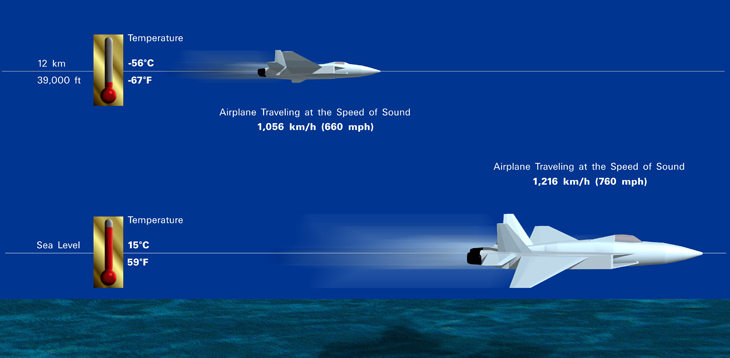
Picture from:
http://www.workingwithwaves.com/sound-waves/
|
The pitch, or the squeakiness of the sound,
depends on the frequency of the sound wave. For example, a
squeaky sound, or a high pitch, is caused by a high
frequency wave. On the other hand, a deep, low sound, or a
low pitch, is caused by a low frequency wave. Waves with
larger wavelengths have smaller frequencies and waves with
smaller wavelengths have higher frequencies. Frequency is
the number of troughs that pass a certain spot in a
second. For transverse waves, troughs are the lowest
height that a wave will drop to.
The loudness of a sound is determined by its amplitude,
which is the highest height of a wave. A higher amplitude
causes a louder sound whereas a smaller amplitude causes a
softer sound.
The speed of sound is faster in warmer temperatures and
slower in colder temperatures. Water tends to be more
dense than air. Thus, sound travels slower in air than it
does in water. Airplanes that break the sound barrier
cause a pileup of sound waves. The waves are trapped
because the plane is traveling at the same speed as the
sound. The trapped sound waves add together to create a
sonic boom.
|

Picture from:
http://howthingsfly.si.edu/media/speed-sound
|



